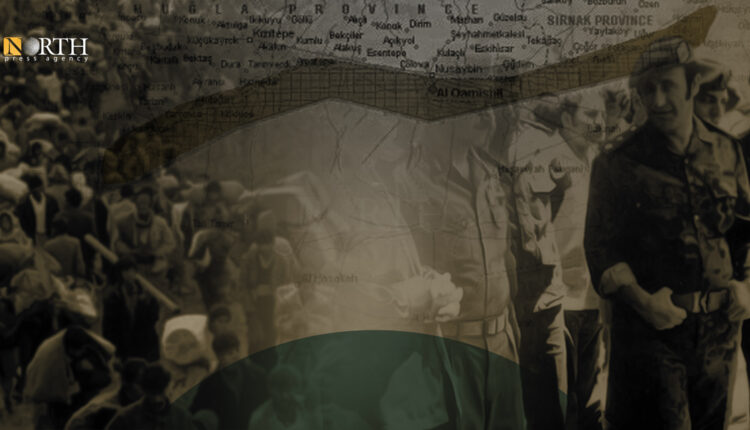QAMISHLI, Syria (North Press) – A human rights organization called on Tuesday for the issue of Syria’s “Arab Belt” project to be addressed transparently and responsibly within transitional justice frameworks, emphasizing the need for official recognition of violations, restitution of property, and compensation for affected communities.
The term “Arab Belt” refers to a state-led demographic engineering campaign launched by the former Syrian regime in 1974 in the Upper Jazira region (present-day Hasakah Governorate).
The initiative involved the confiscation of agricultural lands belonging to Kurdish tribes, landowners, and farmers along the Syrian-Turkish border—an area predominantly inhabited by Kurds.
These lands were redistributed to Arab settlers from Raqqa and Aleppo whose own lands had been submerged by the creation of Lake Assad following the construction of the Euphrates Dam. These settlers later became known as the “Ghamr.”
In a statement marking 51 years since the launch of the project, the Hevdesti/Synergy Association said: “Justice is not achieved by the mere passage of time, but through recognition, reparation, and accountability.”
The associatin called for the return of lands and properties to their rightful owners, fair compensation for all affected parties—including forcibly resettled Arab families—and a transparent, inclusive approach within a transitional justice framework.
Additionally, the statement urged the Syrian authorities and future political processes to publicly acknowledge these violations, enact legal frameworks that prohibit ethnic, religious, and linguistic discrimination, and end exclusionary policies targeting Syrian Kurds.
It also advocated for the reinstatement of citizenship to those who were arbitrarily stripped of it.
The association underscored the need for a new constitution that guarantees equality, the return and compensation of refugees and internally displaced persons, and the establishment of independent bodies to resolve property disputes and oversee reparation mechanisms.
Finally, the group highlighted that the Arab Belt project constituted a clear breach of Syrian law, stating: “The project blatantly violates the principle of equality before the law, as enshrined in Article 25 of the same constitution. It also contravenes Article 771 of the Syrian Civil Code (Legislative Decree No. 84 of 1949), which asserts that: ‘No one shall be deprived of their property except in cases prescribed by law, and with fair compensation.'”

